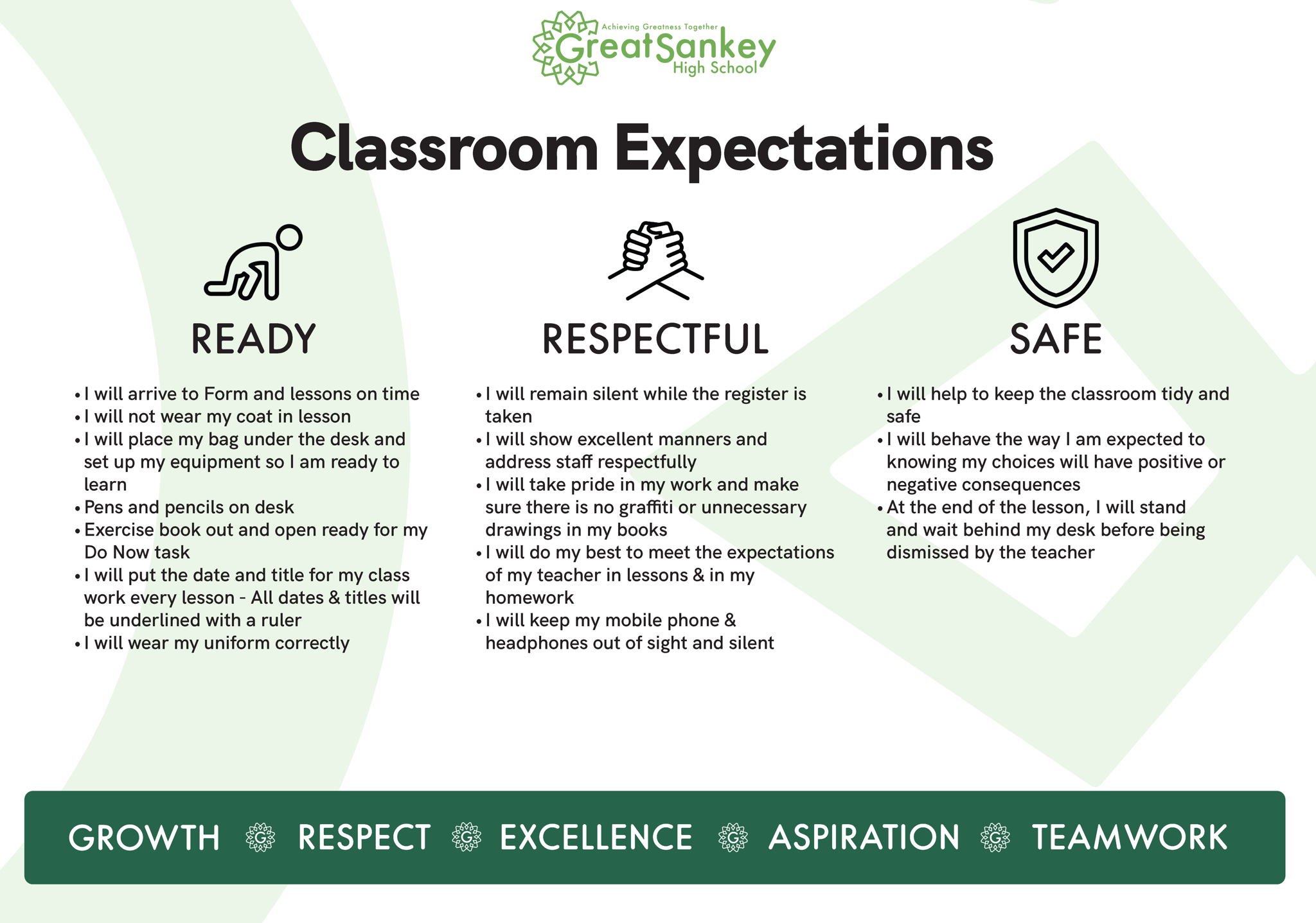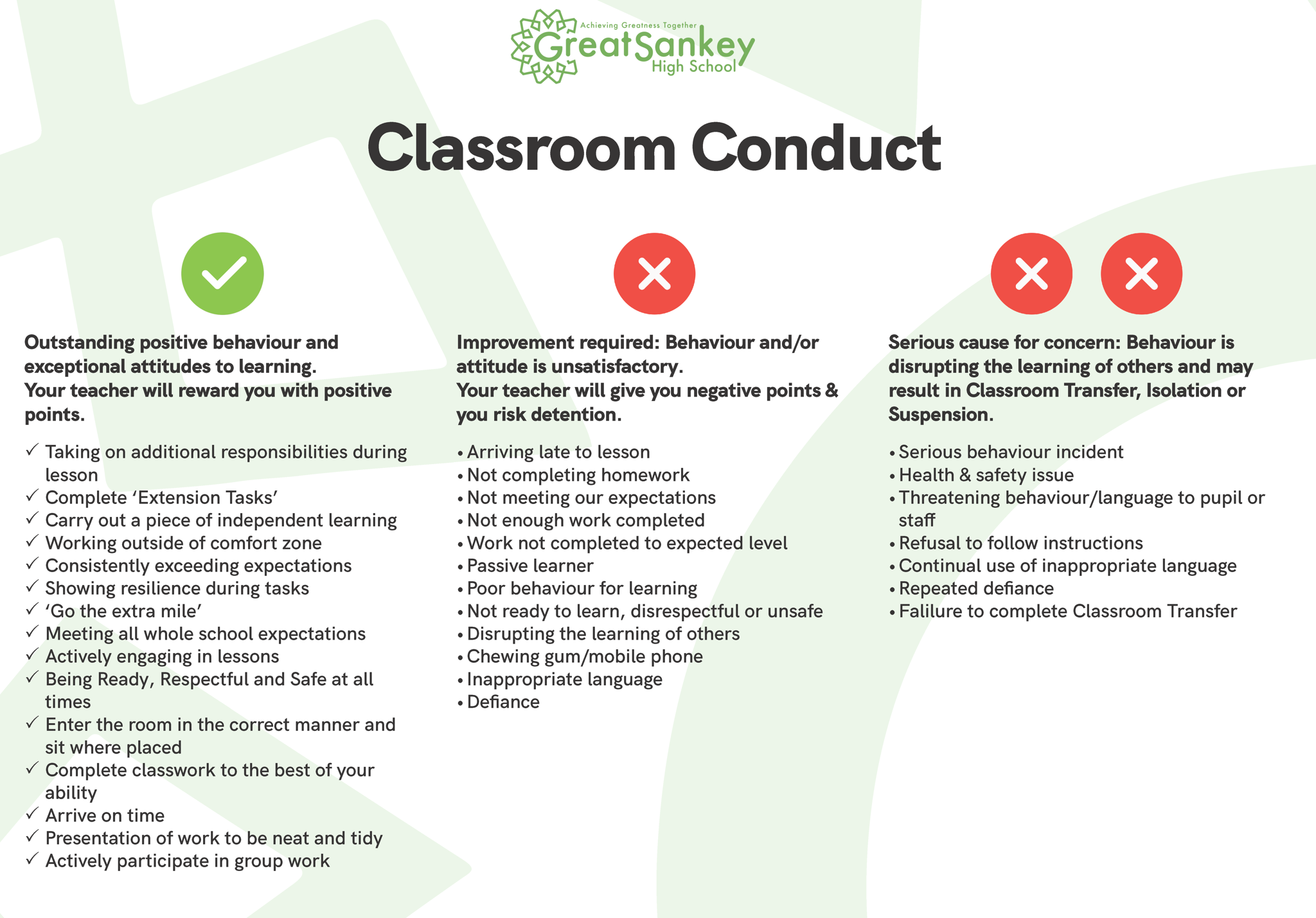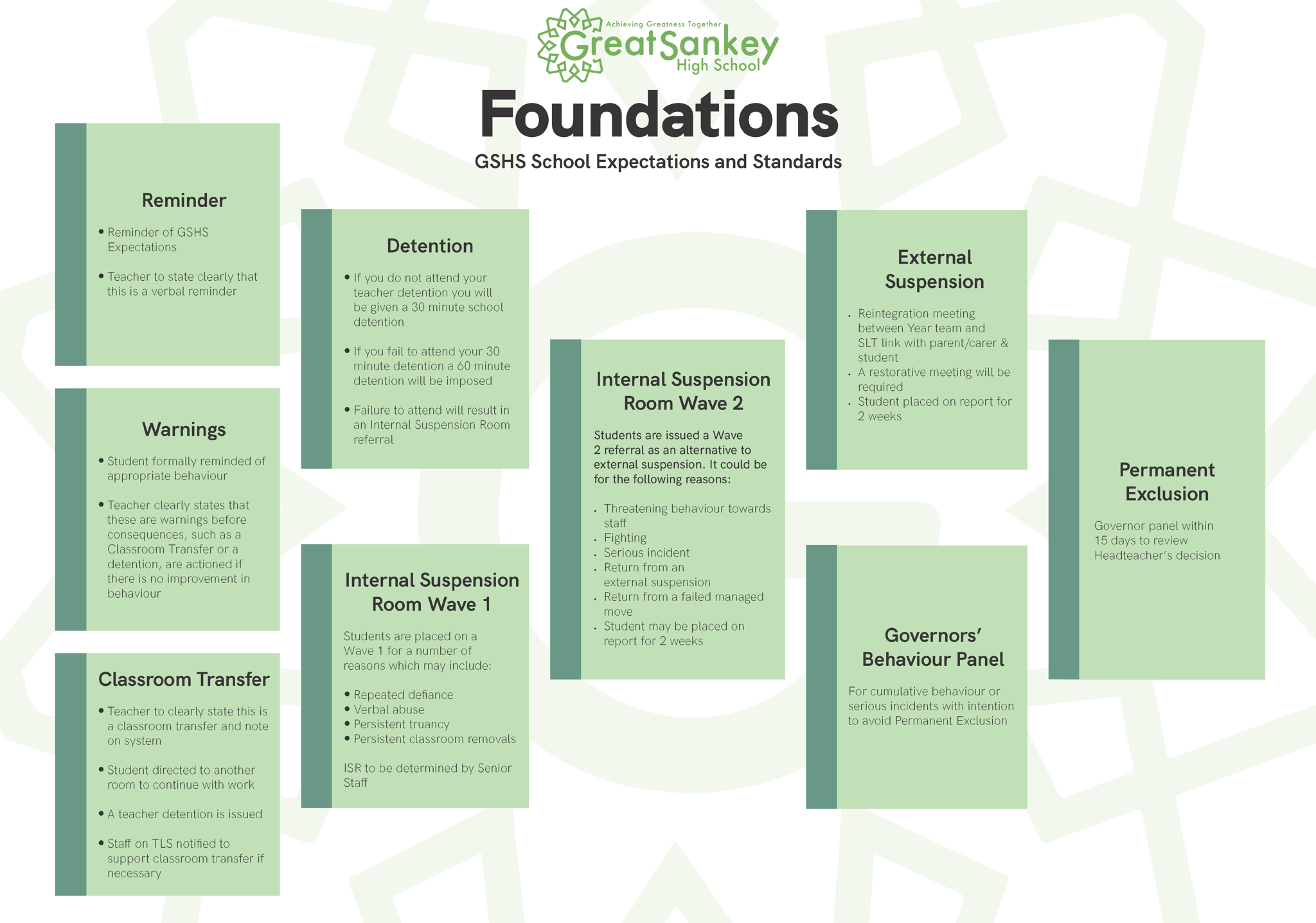Behaviour
Great Sankey High School staff are committed to providing the best possible learning experience for all students and believe that high standards of behaviour are fundamental to students taking full advantage of their learning opportunities and achieving their full potential. This puts the onus on teaching staff to deliver engaging and motivational lessons and to assist students to develop key life skills of politeness, respect for all and self-reliance. The impact of these character traits will benefit the students, their families and have an impact on the wider community. We see parents/carers as important partners in upholding our core values and encouraging positive attitudes to learning.
We take great pride in our Pastoral care. Each year group is led by a Pastoral Team comprised of a Director of Key Stage and a dedicated Pastoral Leader and Assistant Pastoral Leader. Both of these are non-teaching staff so have more time available to them to help support and care for our students. Each year team also has a Progress Leader.
A calm, orderly environment is essential if students are to learn effectively. The staff recognise the need to provide students with a set of simple rules and expectations which enable staff and students to make the most effective use of their time. Furthermore, staff improve students’ behaviour for learning by ensuring that lesson content consistently motivates students and by ensuring all students have enough opportunities to learn independently and in groups.
Our Whole School Expectations are clear and are visible around school so that they are understood by all. They…
- encourage students to be ready, respectful and safe
- encourage and promote good behaviour and positive attitudes to learning wherever possible.
- uphold our high standards and expectations of student conduct and to promote self-discipline in order to maximise each student’s potential to achieve.
- develop a firm and consistent approach across the school.
- provide clear and consistent sanctions which are understood by students, parents/carers and staff.
- recognises and reward those students who consistently demonstrate positive behaviour and attitudes to learning and contribute positively to our school community via our rewards and celebration events.
Promoting Positive Behaviour & A Positive Environment
Perhaps most important of all is the day to day climate and ethos of the School. The school’s vision “Achieving Greatness Together” is promoted through:
- A positive climate that promotes reward and praise rather than sanctions
- The support that staff give to students and to each other
- Examples set by staff in displaying good relationships and communication with students
- A heightened sense of community, where students are ambassadors for the school
- Ensuring equality and fairness of treatment for all.
- Promoting early intervention and effective partnerships with families and external agencies.
- Providing a safe environment, free from disruption, violence and bullying.
- Interesting and well-planned lessons that cater for individual needs
We recognise the importance of positive relationships within the school. Progress within lessons is built upon effective relationships that allow teachers to teach and students to learn.
We aspire to ensure that students:
- respect the “Whole School Expectations”
- be on time to and attend all lessons
- be courteous to staff and to each other
- take responsibility for their own behaviour
- respect the rights of others
- respond positively when spoken to by a member of staff
- value the school environment, our Behaviour Policy and school routines
We ask that students follow our Whole School Expectations. These are the rules which underpin our expectations for students’ behaviour, attitudes and personal development in the classroom and around the school. These rules are important because they help maintain safety amongst a large group of students while also ensuring they are better prepared for following laws as adults. They also help students adhere to policies and procedures that they will face as an employee once they reach adulthood.




